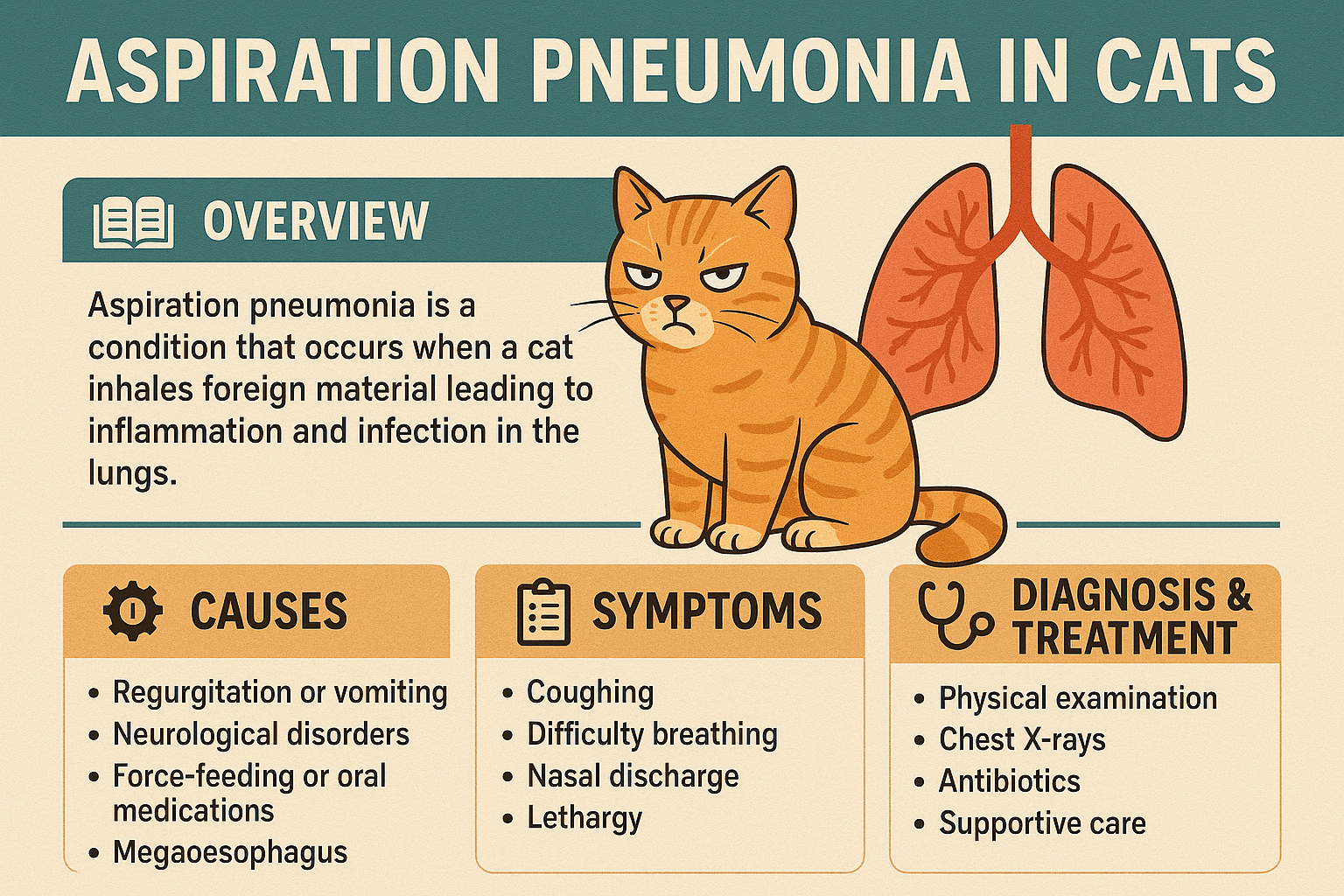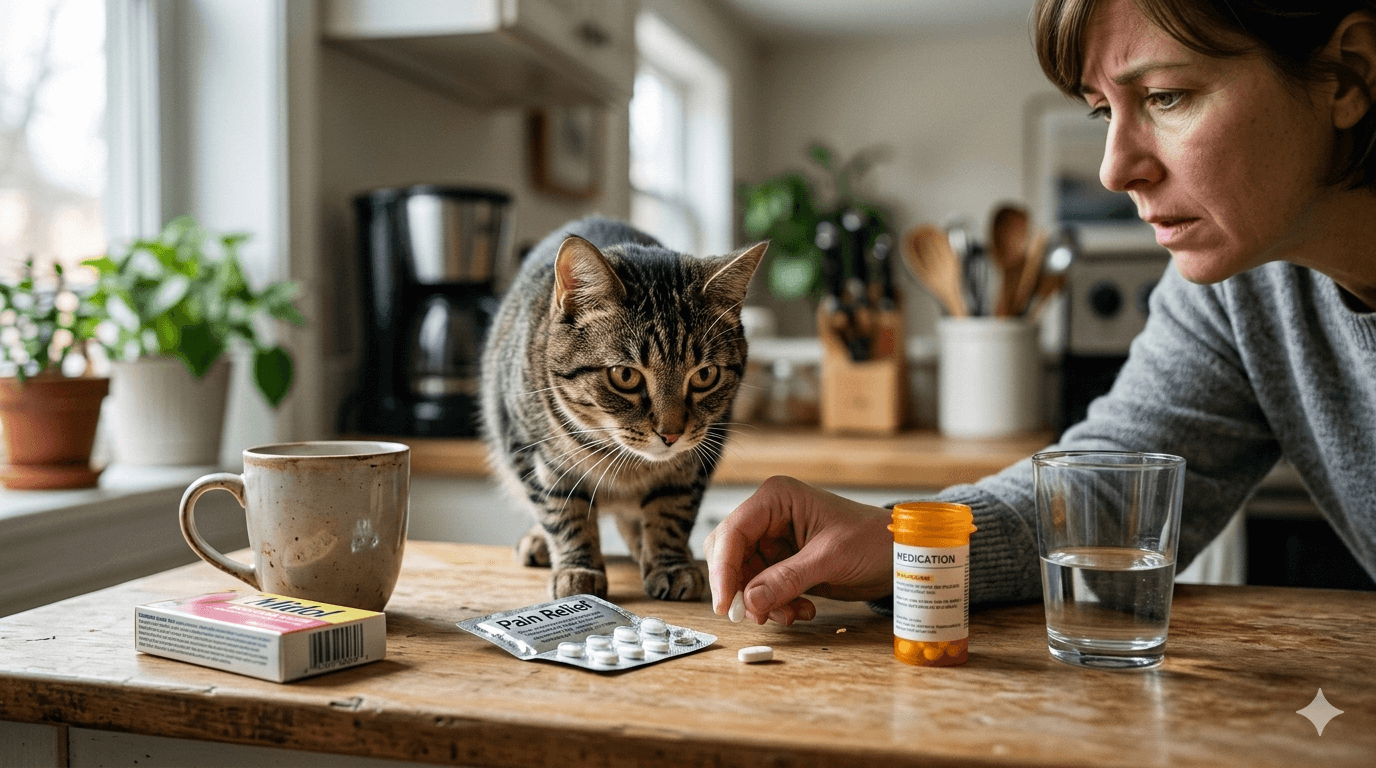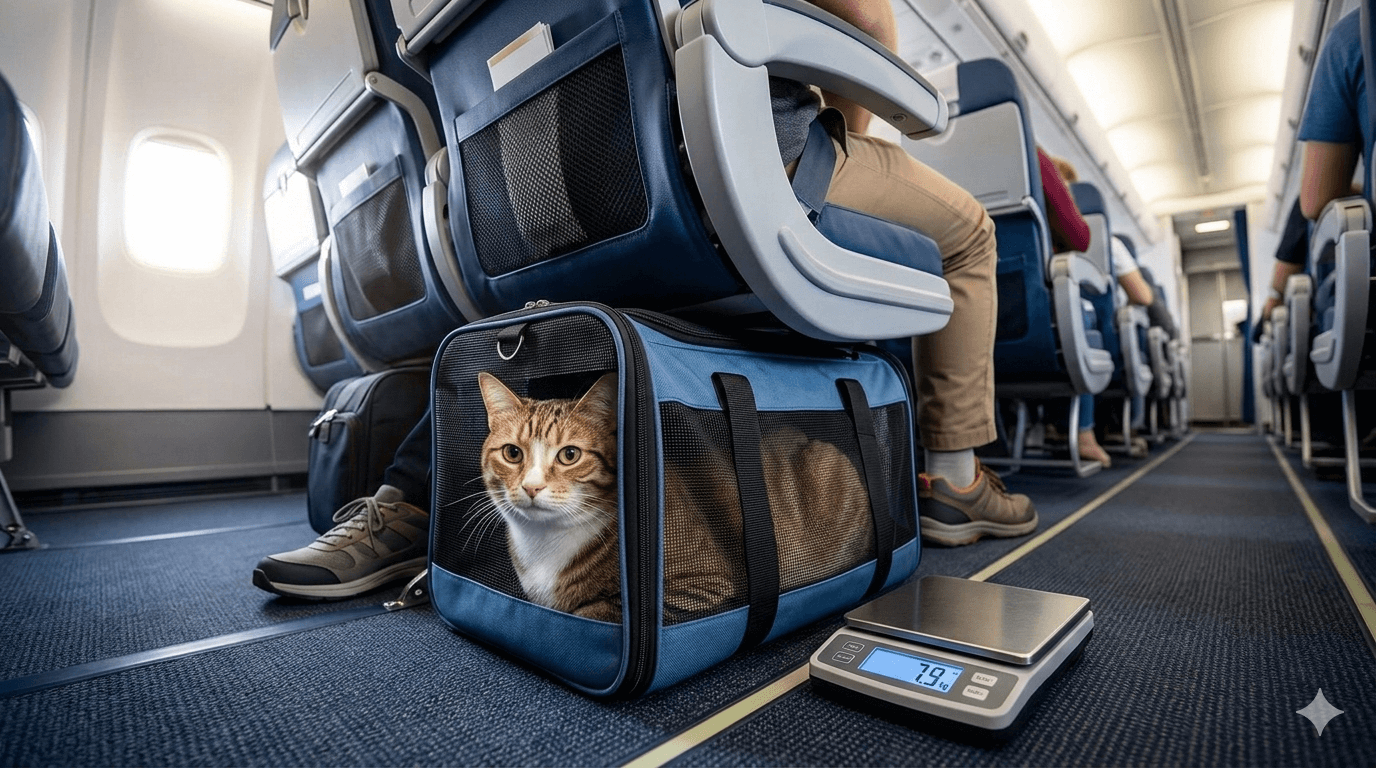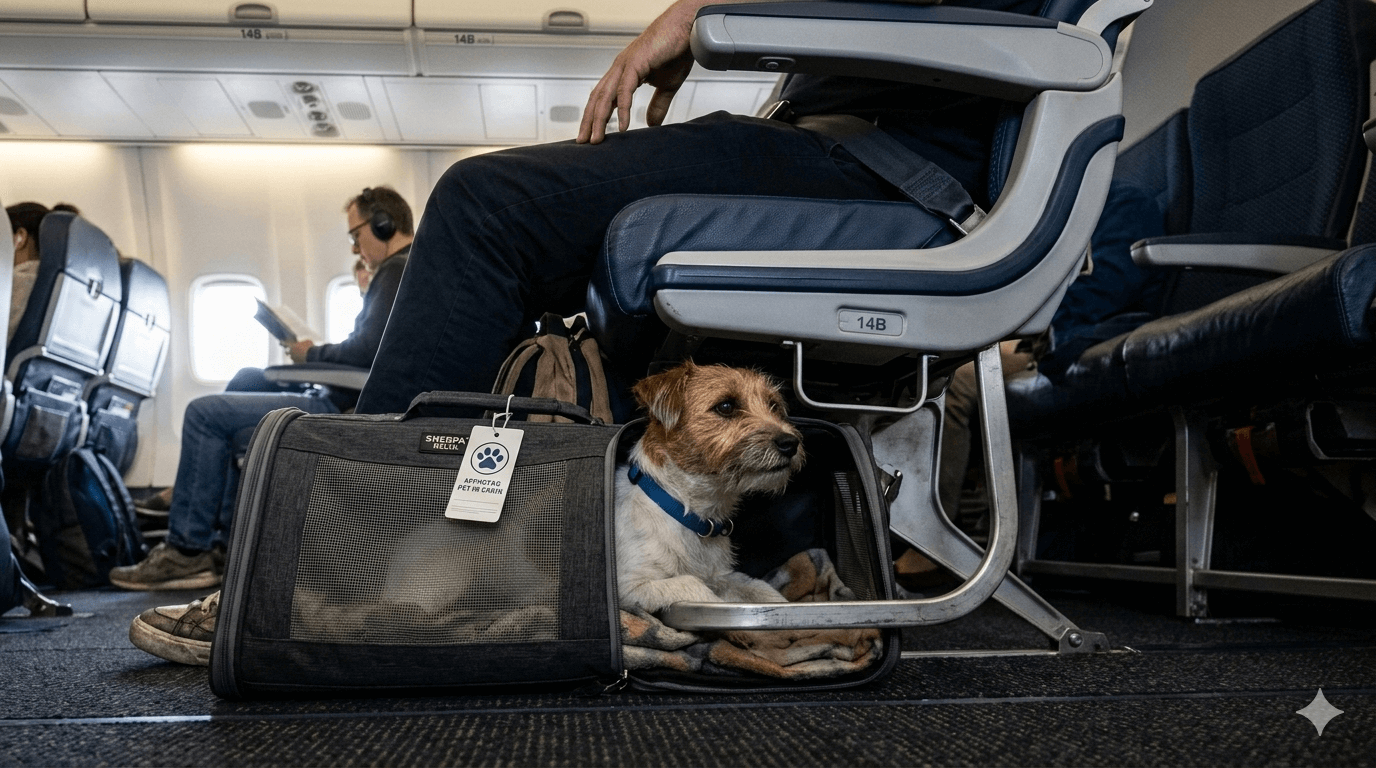Understanding Aspiration Pneumonia in Cats
Aspiration pneumonia in cats is a serious and potentially life-threatening condition that occurs when foreign substances, such as food, liquid, or vomit, are accidentally inhaled into the lungs. This can lead to inflammation, infection, and breathing difficulties, making it a critical issue for cat owners to recognize and address promptly. While aspiration pneumonia is relatively rare in cats, certain underlying health conditions or risk factors can increase its likelihood. Understanding the causes, symptoms, and treatment options is essential for safeguarding your feline friend’s respiratory health. Let’s explore everything you need to know about this condition and how to protect your beloved pet.
Common Causes of Aspiration Pneumonia in Cats
Identifying the root cause of aspiration pneumonia is crucial for prevention and treatment. Several factors can contribute to this condition in cats, ranging from medical issues to environmental hazards.
Dysphagia (Difficulty Swallowing):
Conditions like neuromuscular disorders or esophageal abnormalities can impair a cat’s ability to swallow properly, increasing the risk of inhaling food or liquid.Vomiting or Regurgitation:
Cats that frequently vomit due to gastrointestinal issues or anesthetic complications may accidentally inhale stomach contents into their lungs.Recent Surgery or Anesthesia:
The use of anesthesia can suppress the gag reflex, making cats more susceptible to aspiration during recovery.Foreign Body Inhalation:
Inhaling small objects, liquids, or other foreign materials can directly irritate the lungs and trigger pneumonia.Underlying Health Conditions:
Diseases such as megaesophagus, laryngeal paralysis, or chronic respiratory infections can predispose cats to aspiration pneumonia.
Recognizing these causes allows cat owners to take preventive measures and seek veterinary care if their pet exhibits any warning signs.
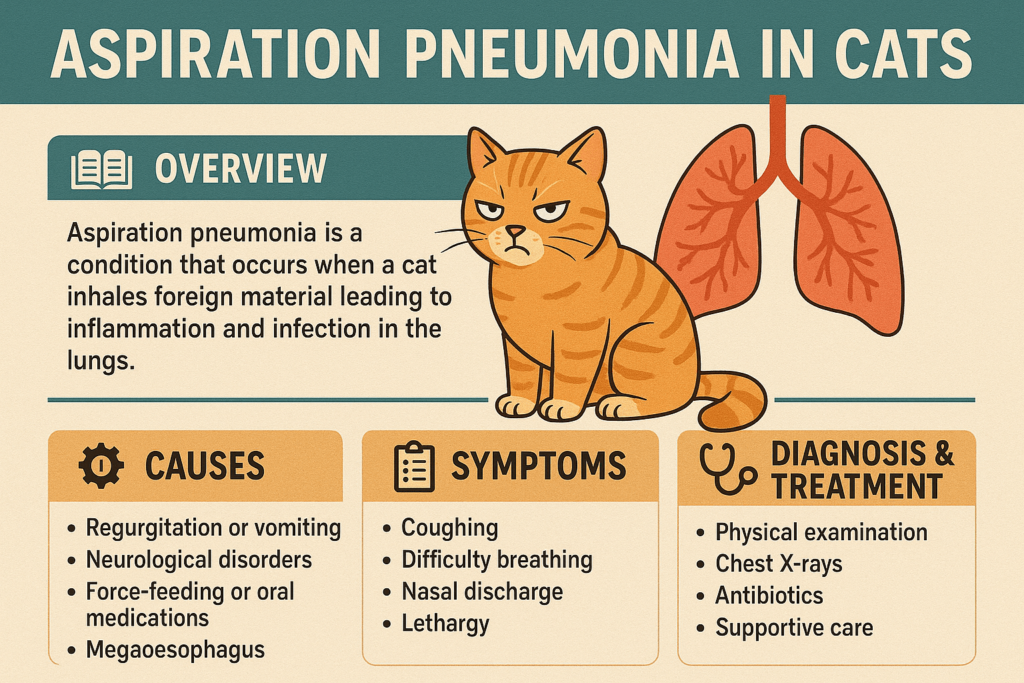
Symptoms to Watch For in Cats with Aspiration Pneumonia
Early detection of aspiration pneumonia is vital for ensuring prompt treatment and improving your cat’s chances of recovery. Keep an eye out for these common symptoms, which may indicate respiratory distress.
Coughing or Gagging:
Persistent coughing or gagging can signal irritation or infection in the lungs caused by inhaled substances.Labored Breathing:
Cats with aspiration pneumonia often exhibit rapid, shallow breathing or open-mouthed panting due to difficulty getting enough oxygen.Lethargy or Weakness:
A sudden drop in energy levels or reluctance to engage in normal activities may indicate respiratory distress.Fever or Elevated Body Temperature:
Inflammation in the lungs can cause a fever, which is a sign of infection or systemic illness.Loss of Appetite or Weight Loss:
Cats experiencing discomfort or difficulty swallowing may avoid eating, leading to noticeable weight loss over time.
If your cat displays any of these symptoms, it’s important to consult a veterinarian immediately to rule out or confirm aspiration pneumonia.
Check this guide 👉Understanding Cat Acid Reflux: Best 7 Health Tips!
Check this guide 👉Why Does My Cat Smell My Breath? Best 7 Expert Tips!
Check this guide 👉Understanding Cat Inflamed Butt: Best 7 Expert Tips!
Preventive Measures for Aspiration Pneumonia | Treatment Options for Affected Cats |
|---|---|
Feed cats in an upright position | Administer antibiotics to treat infections |
Avoid overfeeding or force-feeding | Provide supplemental oxygen therapy |
Monitor for signs of vomiting or regurgitation | Use nebulizers to ease breathing difficulties |
Address underlying health conditions promptly | Perform chest physiotherapy to clear airways |
Keep small objects away from curious cats | Offer IV fluids for hydration and support |
Diagnosis and Veterinary Evaluation for Aspiration Pneumonia
Diagnosing aspiration pneumonia requires a thorough evaluation by a veterinarian, who will use a combination of physical exams and diagnostic tools to confirm the condition. Here’s what to expect during the process.
Physical Examination:
Your vet will listen to your cat’s lungs using a stethoscope to detect abnormal sounds like crackles or wheezing.Chest X-Rays:
Radiographs of the chest can reveal areas of inflammation, fluid buildup, or other abnormalities in the lungs.Blood Tests:
Bloodwork helps assess your cat’s overall health and identify signs of infection or systemic illness.Tracheal Wash or Bronchoalveolar Lavage:
These procedures involve collecting fluid samples from the lungs to analyze for bacteria, fungi, or other pathogens.History and Risk Factors:
Providing detailed information about your cat’s recent activities, surgeries, or health issues can aid in accurate diagnosis.
A comprehensive approach ensures an accurate diagnosis, allowing your veterinarian to tailor a treatment plan specific to your cat’s needs.
Tips for Managing Recovery at Home
Once your cat has been treated for aspiration pneumonia, proper home care is essential for a smooth recovery. Follow these tips to support your feline companion during their healing process.
Maintain a Stress-Free Environment:
Keep your cat in a quiet, comfortable space to minimize stress and promote restful recovery.Monitor Breathing Patterns:
Observe your cat’s breathing regularly to ensure they’re not struggling or showing signs of worsening symptoms.Administer Medications as Prescribed:
Stick to the prescribed antibiotic or anti-inflammatory regimen, even if your cat seems to improve quickly.Encourage Hydration and Nutrition:
Offer fresh water and palatable food to keep your cat hydrated and nourished during recovery.Follow Up with Your Veterinarian:
Schedule regular check-ups to monitor progress and adjust treatment plans as needed.
With attentive care and follow-through, most cats recover well from aspiration pneumonia and regain their vitality.
Risk Factors for Aspiration Pneumonia
Certain factors can increase a cat’s susceptibility to aspiration pneumonia, making it essential to mitigate risks whenever possible. Here are some key considerations:
Age and Seniority:
Older cats are more prone to aspiration pneumonia due to weakened immune systems and age-related health conditions.Neurological Disorders:
Conditions affecting the brain or nervous system can impair swallowing reflexes, raising the risk of aspiration.Anesthesia Procedures:
Cats undergoing surgery may face temporary suppression of protective reflexes, increasing vulnerability to aspiration.Chronic Vomiting or Reflux:
Persistent gastrointestinal issues can lead to repeated episodes of regurgitation, heightening the likelihood of inhalation.Obesity or Poor Physical Condition:
Overweight cats or those with poor muscle tone may struggle with proper swallowing mechanics.
Addressing these risk factors proactively can help reduce the chances of your cat developing aspiration pneumonia.
Foods to Avoid During Recovery
When managing a cat recovering from aspiration pneumonia, dietary choices play a crucial role in minimizing further complications. Avoid feeding the following foods:
Dry Kibble:
Hard kibble can exacerbate swallowing difficulties and increase the risk of aspiration.Large Chunks of Food:
Big pieces of meat or treats may be harder to chew and swallow safely.High-Fat or Greasy Foods:
These can upset the stomach and potentially trigger vomiting or regurgitation.Raw Diets:
Raw foods carry a higher risk of bacterial contamination, which could complicate recovery.Unfamiliar Ingredients:
Introducing new foods might irritate your cat’s digestive system during a sensitive period.
Opt for soft, easily digestible meals recommended by your veterinarian to support your cat’s healing journey.
Long-Term Care Strategies
After recovering from aspiration pneumonia, ongoing care is necessary to prevent recurrence and maintain your cat’s overall health. Consider these strategies for long-term wellness:
Regular Veterinary Check-Ups:
Routine visits help catch potential issues early before they escalate into serious problems.Weight Management Programs:
Keeping your cat at a healthy weight reduces strain on their respiratory and digestive systems.Environmental Modifications:
Remove choking hazards and ensure feeding areas are safe and accessible.Monitoring Underlying Conditions:
Manage chronic illnesses like asthma or gastrointestinal disorders to lower the risk of complications.Behavioral Observations:
Stay alert to changes in eating habits, breathing patterns, or activity levels, as these could signal emerging issues.
By implementing these practices, you can create a supportive environment that promotes lifelong health and happiness for your feline companion.
Frequently Asked Questions About Aspiration Pneumonia in Cats
What is aspiration pneumonia?
Aspiration pneumonia occurs when foreign substances enter the lungs, causing inflammation and infection.
How is it different from regular pneumonia?
Unlike bacterial or viral pneumonia, aspiration pneumonia results specifically from inhaled materials rather than airborne pathogens.
Can aspiration pneumonia be fatal?
If left untreated, it can lead to severe complications or death. Early intervention significantly improves outcomes.
Are certain cats more prone to this condition?
Yes, cats with pre-existing health issues, neurological disorders, or those recovering from surgery are at higher risk.
How long does recovery take?
Recovery typically takes several weeks, depending on the severity of the case and the effectiveness of treatment.
Prioritizing Your Cat’s Respiratory Health
Aspiration pneumonia in cats is a complex and potentially dangerous condition that requires vigilance, prompt action, and ongoing care. By understanding its causes, symptoms, and treatment options, you can play an active role in safeguarding your cat’s respiratory health. Whether through preventive measures or attentive recovery management, your efforts can make all the difference in helping your feline friend thrive. Remember, your veterinarian is your best ally in navigating this challenge—don’t hesitate to reach out for guidance and support. Together, you can ensure your cat enjoys a happy, healthy life free from respiratory complications.
Can I Give My Cat Midol? Best 7 Expert Tips! – Learn the risks, symptoms, and safe alternatives to keep your cat healthy and avoid toxic reactions.
Can I Give My Dog Midol? Best 7 Expert Tips! – Discover the risks, safe alternatives, and expert advice to keep your dog safe from accidental poisoning.
Maximum Weight for Cats on Planes: Best 7 Expert Tips! – Learn airline policies, tips to stay compliant, and ensure safe travels for your feline friend.
Max Weight for Dogs on Planes: Best 7 Expert Tips! – Discover airline weight limits, safe travel tips, and solutions for flying with your dog stress-free.

